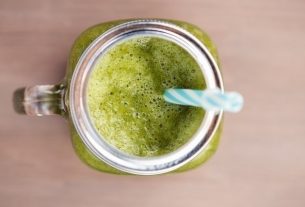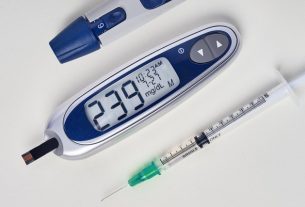Coffee, black tea, mate tea and green tea are some foods that help you lose sleep because they are rich in caffeine, a substance that has a stimulating effect on the central nervous system, increasing focus and concentration.
Furthermore, cinnamon is a spice rich in cinnamaldehyde, a bioactive compound that stimulates physical and mental concentration, and is also a great option for decreasing sleep.
Although they are great options for keeping sleep away, helping with demanding activities such as studying or working, for example, these foods should be avoided for at least 4 hours before bed so that they do not interfere with the quality of sleep.

Foods that make you sleepy
The main foods that can make you sleepless include:
1. Café
Coffee is rich in caffeine, a bioactive compound with stimulating properties that acts on the nervous system, relieving sleep and increasing alertness, and can be used for activities such as studies and very mentally exhausting work. Check out other benefits of coffee.
However, the influence of caffeine on sleep is determined by several factors, not only by the amount of caffeine ingested before bed, but also by the amount of caffeine consumed throughout the day, as well as each person’s particularities and lifestyle habits.
How to consume: the recommended amount for adults is up to 4 cups per day of 150 ml of brewed coffee per day. Pregnant women, planning to become pregnant or breastfeeding, should consume a maximum of 2 cups of 150ml of brewed coffee per day.
Children over 12 years old should drink a maximum of 130 ml of brewed coffee. People with high blood pressure should limit their consumption of brewed coffee to 2 cups per day.
Care: children under 12 years of age should not consume coffee. In the same way, people with reflux, ulcers and gastritis should avoid drinking. Coffee should be avoided by those suffering from insomnia, anxiety, tinnitus and labyrinthitis.
2. Cinnamon
Cinnamon helps you lose sleep because it contains cinnamaldehyde, a compound that speeds up metabolism, as well as improving concentration and physical and mental disposition.
How to consume: The recommended cinnamon intake per day is up to 6g, which can be added to teas, juices, pancakes or porridge, for example.
Care: Cinnamon should not be consumed by women who are pregnant or breastfeeding. This spice is also contraindicated for people with ulcers or serious liver disease.
3. Dark chocolate
Dark chocolate, especially that containing at least 70% cocoa, contains great amounts of caffeine and theobromine, bioactive compounds that improve focus and attention, helping to reduce sleep.
Chocolate also contains carbohydrates, a nutrient that provides energy to the body, improving physical and mental disposition.
How to consume: To obtain the benefits of dark chocolate, simply eat 1 square, or 25 g, per day.
Care: Dark chocolate is not recommended for people with anxiety, arrhythmia, insomnia, reflux or stomach ulcers.
4. Matcha
Matcha is a tea made from young green tea leaves that helps relieve sleep, improve concentration and alertness, because it contains caffeine, a bioactive compound that has a stimulating effect on the nervous system.
How to consume: The recommended consumption of matcha is 2 to 3 spoons per day, which is equivalent to 2 to 3 cups of ready-made tea. Matcha can also be used as an ingredient in the preparation of cakes, breads and juices, for example. See how to consume matcha.
Care: Matcha should be avoided by pregnant and lactating women and children. Furthermore, people with hypertension should drink this tea in excess, as it contains caffeine.
5. Ginger
Ginger contains gingerol, a compound with thermogenic properties that accelerate the body’s metabolism, stimulating energy and relieving sleep.
How to consume: Ginger can be used in teas, and it is recommended to drink a maximum of 3 cups of this tea per day, or added to recipes such as soups, salads and juices. Discover other ways to use ginger.
Care: Ginger is not recommended for those with gallstones. It is also contraindicated for those who have bleeding diseases or who use anticoagulant medications.
People who use medications to control high blood pressure and diabetes should only consume ginger under the guidance of a doctor.
6. Yerba mate
Mate tea helps you lose sleep because it acts on the brain by blocking adenosine, a substance that causes tiredness and sleepiness. Furthermore, this tea also increases the production of neurotransmitters with stimulating effects, such as adrenaline, noradrenaline and glutamate.
How to consume: Yerba mate can be consumed in the form of hot or iced teas, with a maximum of 1.5 liters of this tea per day being recommended.
Care: This herb is contraindicated for children, in the same way that it is not recommended for pregnant women and people with insomnia, nervousness, anxiety disorders or high blood pressure.
This herb should also not be consumed by people who use monoamine oxidase inhibitor (MAO) medications, such as selegiline, moclobemide, isocarboxazid, phenelzine, nialamide, iproniazid or tranylcypromine, for example.
7. Pepper
Pepper helps you lose sleep by containing capsaicin, a bioactive component with thermogenic properties that increase body temperature and accelerate metabolism, increasing alertness.
How to consume: The recommended intake of red pepper is 0.9 to 16 g per day, which can be used to season meats, soups, pastas and stews.
Care: people with gastritis, reflux, ulcers or high blood pressure should consume pepper in smaller quantities and sporadically. Furthermore, the consumption of pepper should be avoided by those who have hemorrhoids.
8. Green tea
Green tea has great amounts of caffeine, a bioactive compound that acts on the central nervous system, stimulating concentration and helping you lose sleep.
In addition, green tea also contains catechins, substances with thermogenic action that increase body temperature, preventing sleep.
How to consume: The maximum recommended intake of green tea is up to 4 cups per day. For people with high blood pressure, the maximum recommendation is 3 cups of green tea per day.
Care: green tea should not be consumed by children, pregnant women or women who are breastfeeding. This tea should also be avoided by people with kidney, liver, thyroid problems, anemia, gastric ulcers, gastritis and those who suffer from insomnia.
9. Guarana powder
Because it contains caffeine, theobromine and theophylline, substances that act on the nervous system, stimulating concentration and increasing alertness, guarana powder is an excellent food to help ease sleep and improve concentration.
How to consume: the maximum recommended amount of guarana is up to 5g per day, which can be used in juices, smoothies and teas.
Care: Guarana powder is not recommended for children, nor is it recommended for pregnant or breastfeeding women, people with insomnia, kidney disease, gastritis or psychological disorders such as anxiety and panic.
10. Energetic
Energy drinks help you lose sleep, because they contain caffeine and sugar, substances that increase energy, concentration and alertness. Furthermore, these drinks also contain taurine, a compound that enhances the action of caffeine in the body. Find out more about energy drinks.
How to consume: As the maximum safe intake of caffeine per day is 400 mg and each 250 ml can of energy drink can contain around 80 mg of caffeine, the maximum recommended amount of energy drinks per day would be around 5 cans, for example.
However, there is still no regulation on how much caffeine energy drinks should contain. Therefore, it is important to always look at the label of each product to check the amount of caffeine it contains.
Care: These drinks are not recommended for children and adolescents, nor are they recommended for pregnant or breastfeeding women.

Sign up for our newsletter and stay up to date with exclusive news
that can transform your routine!
Warning: Undefined array key "title" in /home/storelat/public_html/wp-content/plugins/link-whisper-premium/templates/frontend/related-posts.php on line 12
Warning: Undefined array key "title_tag" in /home/storelat/public_html/wp-content/plugins/link-whisper-premium/templates/frontend/related-posts.php on line 13



